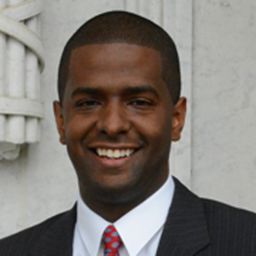Editor’s Note: Bakari Sellers is a former Democratic member of the South Carolina House of Representatives and a CNN commentator. He is the author of the forthcoming book “My Vanishing Country.” The views expressed in this commentary are his own. View more opinion at CNN.
“When America catches a cold, black folks catch pneumonia.”
Growing up in Denmark, South Carolina, my father, Cleveland Sellers Jr., would regularly repeat this notion to offer much-needed perspective in different policy discussions throughout the years. And time and time again, my father’s evergreen sentiments have proven to be correct.

The destructive impact brought on by the coronavirus pandemic is being felt in every corner of America. Each day, our lives and livelihoods hang in the balance as millions of Americans file for unemployment and friends and loved ones die by the hour.
Based on my father’s logic, we should not be at all surprised that in some cities, the overwhelming majority of those who are losing their lives are African American. In Chicago, Milwaukee and New Orleans, African Americans represent 70-80% of the coronavirus deaths. And in St. Louis, according to the Associated Press, African Americans comprise all but three of the coronavirus deaths, as of Monday.
It is impossible to overlook the obvious racial disparities that have made surviving the coronavirus so difficult for African Americans. Asthma, according to federal data analyzed by the Asthma and Allergy Foundation of America, kills African Americans three times more than any other race and increases the risk for complications.
We also cannot ignore the black families who are forced to breathe pollutants from nearby brownfields, oil refineries and freeways and what that can do to the respiratory system, particularly when this new virus can attack your respiratory tract.
We cannot disregard the lack of preventative care and communities of color tucked within food deserts – with little to no access to nutritious options – and with lack of health care access, ultimately adding to frightening rates of high blood pressure and diabetes.
The racial disparities that persist in America are clear and comprehensible, but leaders like Dr. Jerome Michael Adams fail to see the picture.
As surgeon general, Adams is the lead spokesperson on public health matters for the United States government. Yet, last week Adams urged African Americans to stop drinking, smoking or doing drugs to protect those who are most vulnerable.
Adams’ remarks not only perpetuate harmful narratives about black communities, but he blames African Americans for getting sick. When asked about his remarks, Adams said that his remarks were not meant to be offensive and that the guidelines are meant for all communities.
The story of this pandemic cannot be told by simply looking at the numbers. For example, national news outlets have drawn attention to Alabama for some of the highest coronavirus-related death rates and hospitalizations in the country, with African Americans comprising 35.7% of confirmed cases and 53.2% of deaths, despite only representing 27% of state’s population.
But we must also consider the story behind these figures.
Let’s discuss the numerous rural hospital closures in the state, lack of preventative care and distrust of health care in general stemming from the Tuskegee experiments that commenced over four decades ago.
Moreover, I imagine it would be emotionally difficult for any African American who had to endure the dark legacy of Tuskegee to take advice from health professionals that don’t look like them, especially on an unknown virus like Covid-19.
At a time like this, our leaders cannot afford to ignore racial disparities that have led to the crisis we have today. Now that we have data on the impact of coronavirus, we must focus recovery efforts on the distressed communities that need our assistance the most.
We must applaud the efforts of governors like Gretchen Whitmer, Gavin Newsom and Andrew Cuomo for taking the necessary steps to save lives in their respective states and state legislators like Nick Mosby, who is leading the charge in Maryland to release more Covid-19 case data based on race and ZIP code.
As we continue to tackle the public health impact of the coronavirus pandemic, as well as the efforts by way of the CARES Act – the federal government’s economic response to the current fiscal crisis – we must approach recovery efforts with a racial lens that takes into account the disparities that put us in this situation.
Failing to address the persisting racial disparities is not only perpetuating racism, but also a surefire way for history to repeat itself years from now.


